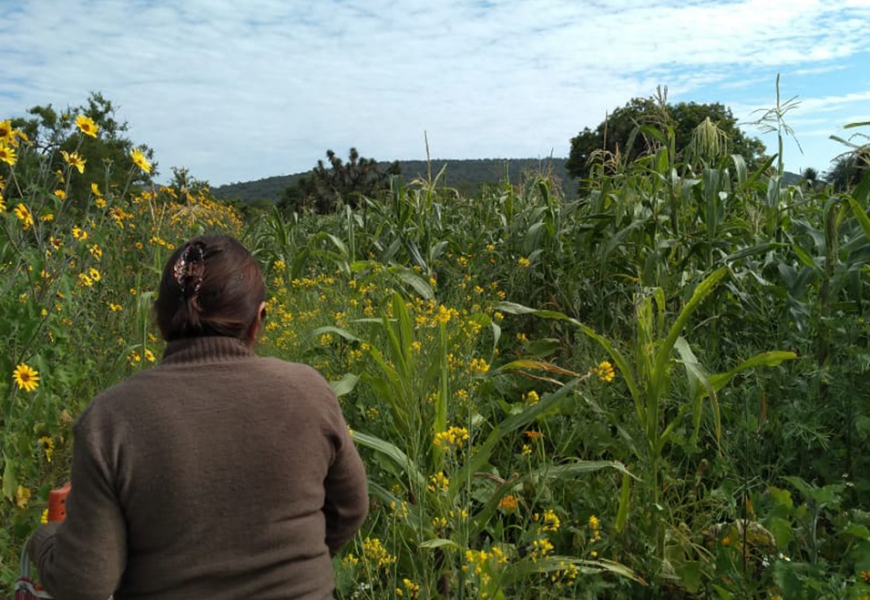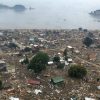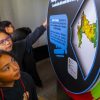Verónica Ruiz, a Mexican doctoral student, did a virtual internship at the University of Concepción, Chile, researching the food systems of the native peoples of both countries and the various factors that influence them. She focuses especially on the place of harvesting products in food security and sovereignty.
By Iván Tobar / ivtobar@udec.cl / Photographies: Verónica Ruiz
In the geographical center of Mexico, in a region of the Chihuahuan desert that extends from the north to the center of the country, the state of Querétaro is located, in which both the city council Ezequiel Montes and the delegation of Villa Progreso can be found. Here is where the research of Verónica Ruiz Olivares, an engineer in Agroecology with a master’s degree in Forest Sciences, and a PhD student in Agrarian Sciences from the Department of Rural Sociology of the Universidad Autonoma Chapingo, in the North American country, is carried out. She did a virtual internship between February and June of this very year at the Universidad de Concepción, in the context of the Science, Research and Development Program in Latin America, Cidesal, financed by the Vice Chancellor Office for Research and Development, VRID.
The purpose of her research, Ruiz explains, “is to study the traditional cuisine of Villa Progreso through its relationship between culture, ecology, heritage and food sovereignty in order to have a better understanding of its food system.”
This virtual research stay is directed by the academic of the Faculty of Humanities and Arts, Noelia Carrasco Henríquez, also director of the aforementioned VRID program. “Cidesal constitutes a platform for the articulation of researchers, the formation of human capital and the generation of new investigation proposals. Verónica’s integration was possible based, above all, on the previous trajectory of researchers such as Beatriz Cid and a team of which I was also a member”, explains the UdeC academic, in reference to the ‘Arca del Gusto’ project (“Ark of Taste Proyect”). Development of community culinary tourism in Chile.
Dr. Carrasco highlights that “the results projection shows that in all Latin American countries, attention to local food systems has been intensified in recent decades, within the framework of processes associated with both economic and cultural rights of the peoples.
For Ruiz, food and processes associated with it, are fundamental objects of study, “both in terms of research and personally; and I believe that they are very present at Cidesal since it is a crucial part of cultures and identities. It is a topic of common interest, and there is much yet to be investigated and Cidesal can greatly contribute to integrate networks from Mexico and Chile, because of their similarities and also some differences that make us grow”, she underlines.
“Cidesal caught my attention for its approach on Latin American processes, because -explains Verónica Ruiz- this is a complex territory, but that has great similarities. I also liked the critical way in which the investigations are carried out; this can really contribute to us all. It is a community work and in network that makes it pertinent to the present needs”.
Ruiz also points out that Doctor Carrasco “has worked with Mapuche communities in Araucanía region, in a similar case in her doctoral thesis, and now the research work that I am doing is about a people that still maintains its identity, the people of Otomí-Chichimeca, with people who still speak the Hñahñú language, which is also reflected in their diet. Therefore, working on this research about their food systems turns out toout to be complex and necessary at the same time.”
For more information follow:
cidesal.cl,
noeliacarrasco@udec.cl
Last modified: 29 de agosto de 2025






